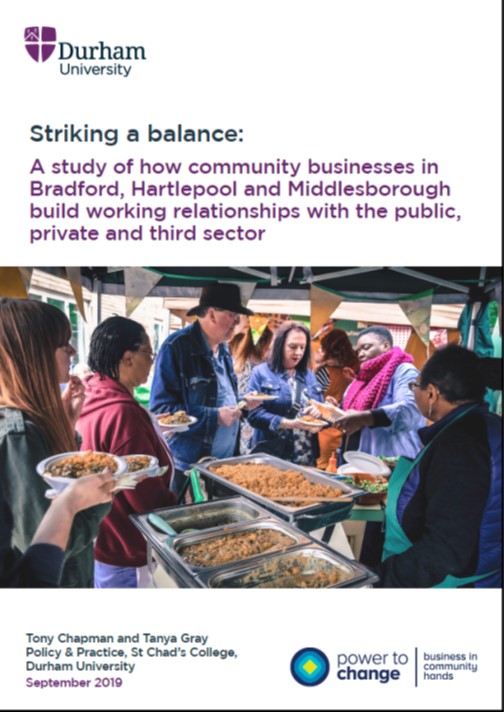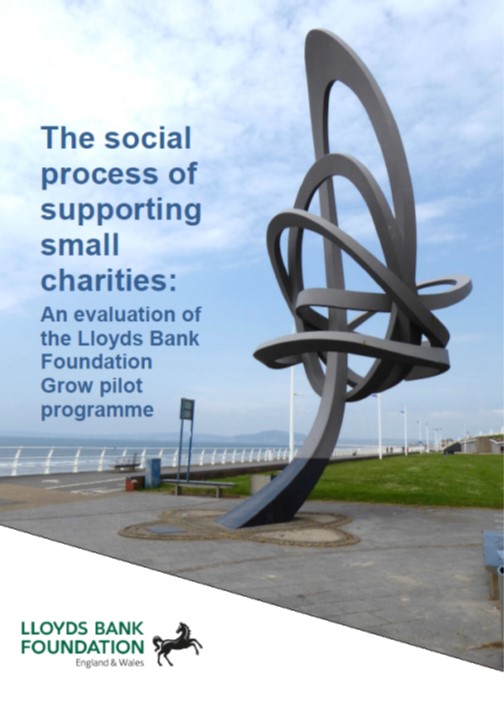A seminar to discuss the way forward for stakeholders in the voluntary sector, charitable foundations and the public sector.
Friday 5th July 2019, Riverside Stadium, Middlesbrough, 9.30 – 1.00
The voluntary and community sector (VCS) has maintained its role in supporting and strengthening the civil society in Tees Valley. It has done so in the context of a great deal of economic, social and political change. The aim of this event is to bring people together from the VCS, charitable foundations and the public sector to engage in a forward looking debate surrounding the changing policy and funding landscape and the positive contribution which the sector can make to the economic, social and environmental wellbeing of the area.
Perhaps surprisingly, given the challenges of recent years, the VCS has managed to sustain its contribution at more or less the same size and scale of activity. This has been achieved as individual organisations and groups have adapted and looked at new ways of accessing resource through trading, fundraising, public sector contracts, winning grants from regional and national foundations and from social investment banks. The mix may have changed in the sector’s basket of funding, but the overall volume of income seems to have remained much the same.
But it has not been easy and many VCS organisations say that they have had to work harder than ever to keep themselves going and supporting local causes that are important to them. With all these changes in mind, it seems like a good time to ask people to get together for an event. The event will be small but productive, with just 60 places, bringing key stakeholders from the VCS, public sector and charitable foundations together from across the five boroughs of Darlington, Hartlepool, Middlesbrough, Redcar and Cleveland and Stockton-on-Tees.
At the start of the event, a panel presented views on the future challenges facing the sector, including policy trends, funding and investment context and potential collaborative initiatives with partners.
The event was chaired by Councillor Chris McEwan, Darlington Borough Council.
Nancy Doyle-Hall, Executive Director, Virgin Money Foundation: on the role of charitable grant making foundations and trusts in supporting civil society
Alison Collins, Investment Manager, Northstar Ventures: on the role of social investment in developing VCS sector strengths
Tony Chapman, Policy&Practice, St Chad’s College, Durham University: on changing funding relationships between the public sector and the third sector.
Following table discussion there was a second panel to debate with the audience the current situation across Tees Valley and its environs and the future prospects for the development of civil society.
Tracey Brittain, Middlesbrough Voluntary Development Agency
Karen Grundy, Community Programme Manager, Catalyst Stockton
Mike Millen, CEO, Redcar and Cleveland Voluntary Development Agency
Slides from the seminar can be found here:
Alison Collins – ILG Seminar 5th July 2019
Tony Chapman – ILG Seminar 5th July 2019
Introductory Slides – ILG Seminar 5th July 2019
Mark Davis ILG Seminar 5th July 2019
Mike Millen – ILG Seminar 5th July 2019
 ith over 1,100 returns. In Yorkshire, we have over 850 and in North West England, well over 1,000.
ith over 1,100 returns. In Yorkshire, we have over 850 and in North West England, well over 1,000.
 ips are configured between state and non-state actors.
ips are configured between state and non-state actors.
 mmunity wellbeing. So it’s not surprising that governments and big charitable foundations have been attracted to the idea of helping build their capability to do things better and their capacity to do more of it.
mmunity wellbeing. So it’s not surprising that governments and big charitable foundations have been attracted to the idea of helping build their capability to do things better and their capacity to do more of it.


